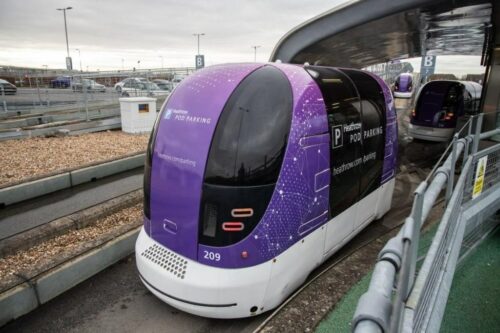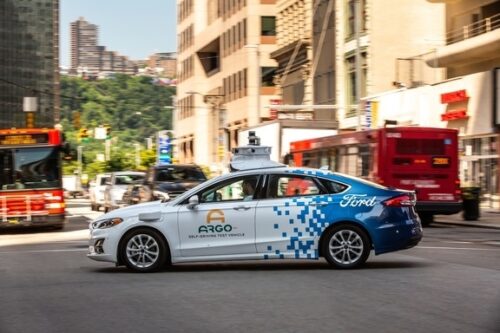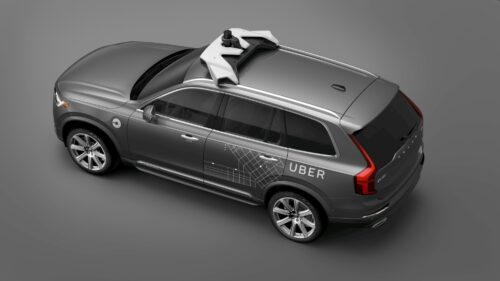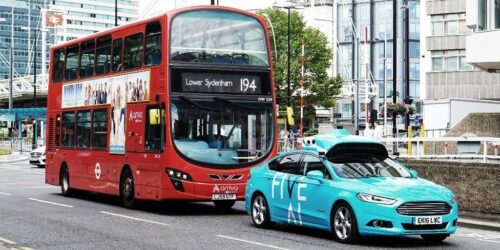
The journey thus far for Artificial Intelligence (AI) being used in driverless (or autonomous) car technology is a complicated one - but it’s gaining traction and pushing boundaries in the UK.
To think that AI driverless cars will be rolled out by 2021 is a thrilling thought. But yours (and likely the general public’s) perception of what this will entail by this date might be somewhat different from the reality.
However, the tech is moving ahead – not least because the government seek to put the UK at this forefront of a £52bn driverless car industry.
Here’s an update on what AI driverless technology has achieved so far and what we can expect to see on our roads next.
AI Driverless Car to Be Rolled Out By 2021?

Trials of fully autonomous cars, where no driver oversees control of the vehicle, are set to take place by the end of this year, after the Department for Transport announced it intends to support “advanced trials” on public roads.
Richard Harrington, UK Automotive Minister, is keen to keep the matter high on the agenda, ensuring that “we take the public with us as we move towards having self-driving cars on our roads by 2021”.
While the situation in the UK is developing, Jack Cousens, Head of Roads Policy for Automotive Association AA, warned: "While we generally welcome ambitious targets, 2021 feels extremely challenging given the technical and legal hurdles yet to be overcome.”
So what should we expect to see? Right now, we might see driverless vehicles following fixed routes in dedicated lanes (see Heathrow Airport Pod, pictured – providing driverless cars for travellers in a hurry) but the self-driving vehicle that can take you anywhere, in all traffic and weather conditions, is a further milestone to reach.
AI Driving Around The World
Worldwide, 2018 saw the US driverless car scene suffer a major setback when an Uber autonomous car was involved in a fatal crash in Arizona. In California, there was another fatal accident involving a Tesla when it crashed into a roadside barrier and caught fire whilst in Autopilot mode.
So, what about the UK’s future with AI cars? Previous self-driving trials have required a driver to be in the vehicle or overseeing it remotely, intervening if required. The Department for Transport says, however, that it "acknowledges the growing desire of industry to conduct more advanced trials", and plans to update legislation to facilitate this.
These moves are intended to help realise the government's intention to make the UK overtake the USA in becoming a world leader in autonomous cars, an industry predicted to be worth £52bn by 2035.
AI: Moving Britain Ahead
According to David Hynd, Head of Connected and Autonomous Cars for transport research centre TRL, there are a number of groups considering advanced trials in the UK. But no one is close to having cars with no controller in an open environment under the UK Code of Practise for testing before being brought to market. Right now, we are still awaiting the advanced trials of driverless cars which all projects would have to adhere to, as well as rigorous safety tests required by the government.
What are the AI blind spots?
Whether our UK roads are ready for driverless mobiles solely depends on whether AI technology is truly ready. Here are some of the current limitations to an AI driverless world:
- Weather Conditions: The ability to scan the environment can be obscured by heavy snow, rain or fog, making real-world UK conditions less than ideal testing grounds.
- Road Markings: Lane markings differ around the world too, meaning cars will need to learn how to drive differently from country to country, for example when crossing European boarders.
- Every Eventuality: To test every real-road eventuality, researchers combine AI training data with human feedback, teaching the technology to produce a flawless model that identifies situations in the real world which may not be totally logical. This is an ongoing process and captures times when more information is needed for AI to solve a problem/drive safely.
- Human Intervention: Humans are still reluctant to give up control, as well as ride in self-drive cars. An AAA survey found 73% of Americans would be too fearful to ride in a fully-automated vehicle. So we need a think in society to embrace the technology when the time is right too.
Brands driving autonomous vehicles ahead
As we look ahead, the anticipation rises for what is next in autonomous vehicle capability in the UK. Here are what some of the leading tech and car manufacturers have in store.
Ford and Volkswagen

Ford Motor Co and Volkswagen AG have announced they will team up to jointly develop electric and self-driving vehicles, deepening a global alliance to combine their expertise for a fully autonomous vehicle coming in 2021. VW will invest $2.6 billion in Ford’s Argo AI, set to be used in a driverless ride share development in 2021. Because of the uncertainty and spiralling costs around driverless cars, we are likely going to see more collaborations between automakers too.
Volvo

Volvo have already developed a joint venture with Uber, providing vehicles for their self-driving project. Volvo also plan to have a car that can drive fully autonomously on the motorway by 2021, so watch this space as they test vehicles with more advanced self-driving features. Volvo even became the first car company to promise to accept full liability whenever one of its cars are in autonomous model.
FiveAI

In April 2019, tech company FiveAI began running driverless car trials on selected public roads in Bromley and Croydon in London, partnering with the government-funded initiative StreetWise, with the aim of starting a commercial service in London by 2020.
Latest Expert Predictions
As we enter the later half of 2019 an expert survey has recently concluded that consumers think it will be close to a decade before self-driving vehicles are ready.
The survey polled more than 100 auto and tech experts about the future of self-driving vehicles, as well a the opinion of over 5,000 consumers. Key findings from the survey concluded:
- Experts predict another 12 years before driverless vehicles are being sold to private buyers.
- Industry insiders think robo-taxis (seen above) will not be ready for widespread public use until 2025.
- Autonomous vehicles will make up just 10% of all vehicles being bought and sold by 2034.
In the meantime we will see more collaborations between automakers and tech companies as we venture through what is an uncertain and costly development stage for AI driverless cars.

You Might Also Like
The Best SUVs on the Market Today
The Most Exciting New Car Releases for 2022
Electric car predictions for 2022
Visit our YouTube channel to find our car reviews and expert advice.




